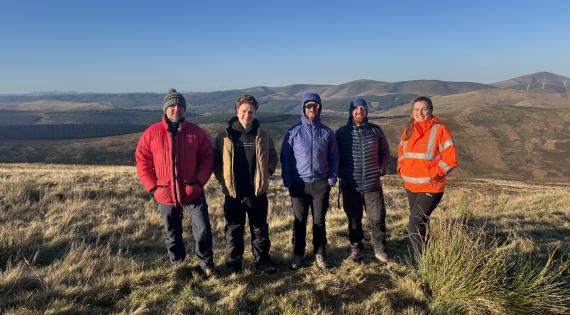So, you’re interested in applying to one of the FDRI-supported PhDs… or maybe you need something to pique your interest! Hear from current PhD candidate, Alex Braggins, about his first impressions, what he hopes to achieve through his research and top tips for applicants.
Find out how you can work with us to participate in and help develop cutting-edge PhD opportunities in flood and drought research.

The inside flow: insights on a PhD in hydrology
Help develop supported PhDs
Do you have an exciting PhD project idea that could benefit from the infrastructure and support provided by the Flood and Drought Research Infrastructure?
We are seeking to develop collaborative PhD projects aligned with the UK Floods and Droughts Research Infrastructure (FDRI). FDRI PhD support includes access to infrastructure, training, placements, and expertise across the FDRI project and £5,000 towards PhD studentships. These initial PhD projects will take place while core monitoring infrastructure is being designed and installed, with many opportunities to partner with FDRI through innovative hydrological monitoring, novel digital infrastructure and working in our FDRI catchments in the Upper Tweed, Upper Severn and the Chess sub catchment (Thames basin).
For Project Investigators developing PhD proposals that would be advertised in Autumn 2025 and start in September 2026, please complete and return the application form below. Please note that proposed projects must include input from someone affiliated with FDRI (this could be co-supervision or more general input and support). This year, we will be prioritising projects aligned to the digital (led by Matt Fry, UKCEH) and innovation (led by Wouter Buytaert, Imperial) work packages. More information and details can be found in the application form.
We also welcome applications and expressions of interest throughout the year. If you miss the deadline above for central FDRI PhD support but are interested in developing a collaborative FDRI PhD project or have a funded project that is closely aligned to FDRI and would like to collaborate, then please get in touch at fdri@ceh.ac.uk.
